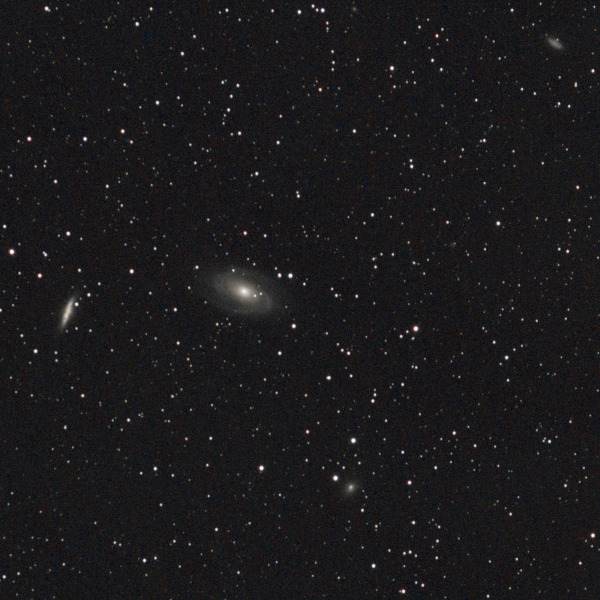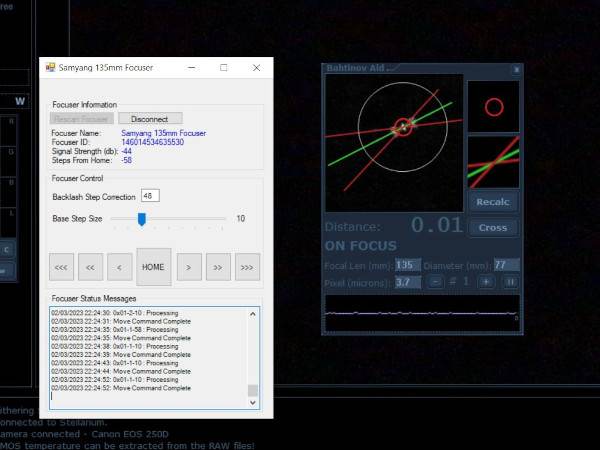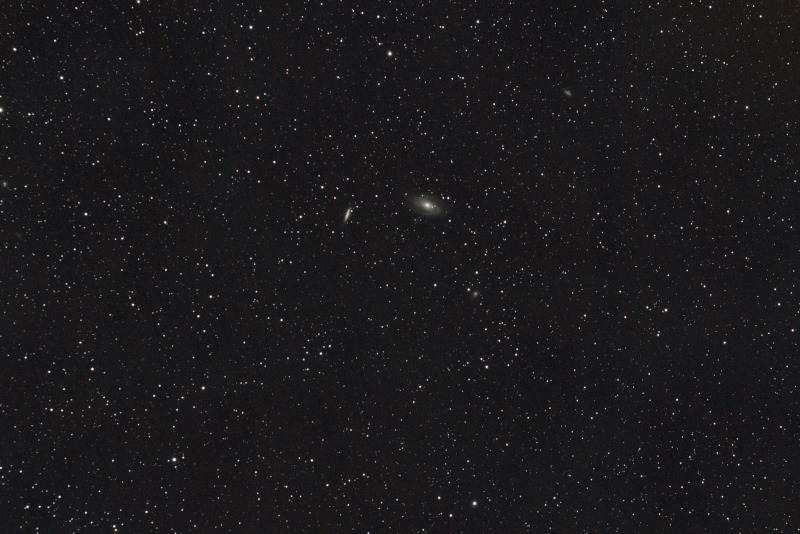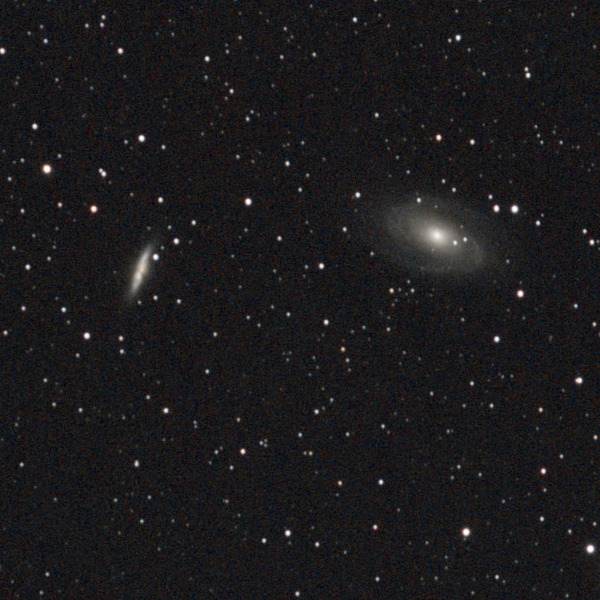
I’ve learned that if the skies are clear, you better be outside. Because you never know when you’ll have the next clear night. That means that even if the conditions aren’t perfect, you just need to suck it up and make due. The nearly full moon perched itself just above Orion in the sky. Almost as if to say – keep dreaming kid… It’s clear I’m running out of time to shoot Orion, but as not to be blanked, I decided to shoot something new. Tonight, M81 & M82 are in the plan with the Samyang 135mm lens.
I Had No Expectations
M81 and M82, or Bode’s Galaxy and the Cigar Galaxy respectively, sit roughly eleven million light years away from Earth in the constellation Ursa Major. Putting it another way, these are very small targets. If I’m going by my experience with the Pinwheel Galaxy, I know I’m pushing the limits of what I can capture with the Samyang 135mm lens. Since the moon already seems to be spoiling my shooting session, I figured what the heck… Besides, I’ve got another chance to put the Samyang 135mm Lens Focuser through its paces.
Playing with the Samyang 135mm Focuser
So I got everything set up and turned the focuser on. I’d be shooting at f/4, so the biggest challenge was finding a star to focus on. All the good ones seem to be hanging out with the moon. Despite this, I decided to line up Betelgeuse to get my focus set. So after a minute or two lining up the star, I popped my Bahtinov mask on and got to it.
Let me tell you… It doesn’t get any easier than this. Focusing definitely only took me about a minute while using APT’s Bahtinov Aid Tool. The hardest part was keeping my star in the tool’s popup window. As I finished the focuser, I thought I’d regret not writing an ASCOM driver so I could fully automate my focusing routine. To be honest, I don’t really feel like I’m missing anything with my solution. As you can see, with very little effort I can dial right in with the focus.

Two Big Thumbs Up for Plate Solving
I’ve mentioned this before but it’s worth mentioning again… David_taurus83 over at stargazerslounge.com wrote a tutorial for how to configure plate solving in APT. It’s not a straightforward task at all, but he walks you through every detail. So why is this important?
Trying to find a very small target in horribly light-polluted skies can be an exercise in futility. Being able to point your camera in the rough direction of your target to take a photograph and send the coordinates to your planetarium software can be a real session-saver. Especially on cold nights when your hands stop working. Perhaps the best part is that once the field of view is displayed in your planetarium program, you’ll know exactly which direction to move your camera if you’re using an equatorial tracker.
Since I configured this on my computer, I’ve used it during every session I’ve been out. It just makes short work of getting set up which means more time taking photographs.
M81 & M82 with the Samyang 135mm Lens
Now on to the main topic of the post… My camera’s USB port was telling me it wanted to take the night off. I’m not sure if it was the cold or if the connector is coming loose (hope not!). That’s not a huge problem to overcome as I just switched over to wireless control. I had to specify to only store the photos on the camera though. The main reason I did this was to avoid the 10 seconds or so it takes for the photo to wireless transfer to the computer. So I took about 5 photos which were displayed on my computer and once happy I switched over to keep the images on the camera card. Now I won’t know how things went until after I’m finished. Fingers crossed.
I must have been really on my game because my polar alignment was bang on. There was very little drift over the course of about 3 hours of shooting. Now I just need to stack and stretch the photos to see how things turned out.

I was excited by how much detail I was able to capture with these targets and these conditions. I really wasn’t expecting this. Below, you’ll see a zoomed image of the two targets.

So all in all, I couldn’t be happier with the results. Definitely worth all the pain I experienced the following day at work after getting very little sleep. Now I’m looking forward to getting out again under darker skies to take another crack at these targets. Who knows when that will happen though? Anyway, that’s the latest and hopefully, I’ll have more to post soon now that the weather finally seems to be breaking.
